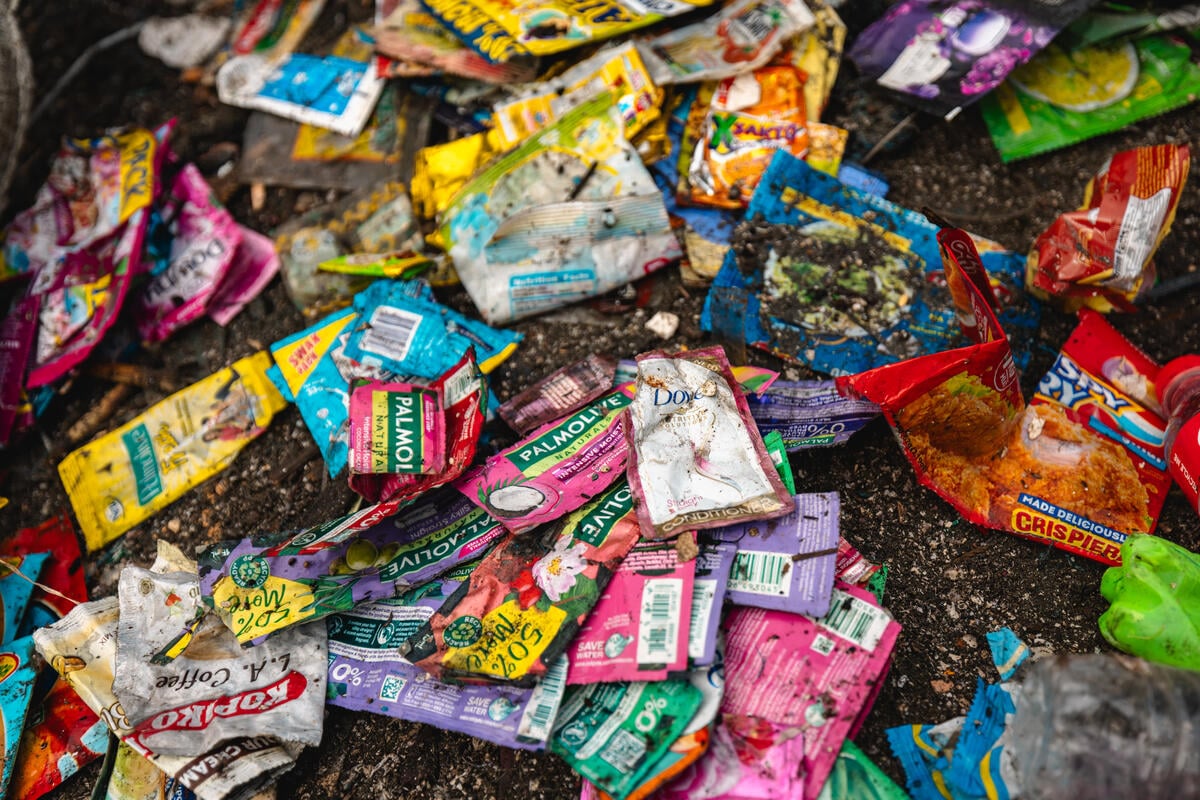Jakarta, Indonesia – Air pollution will take an estimated seven million lives globally in the next year, while costing the world’s economy nearly 225 billion USD.[1] [2] The latest data compiled in the IQAir AirVisual 2018 World Air Quality Report and interactive World’s most polluted cities ranking, prepared in collaboration with Greenpeace Southeast Asia, reveals the state of particulate matter (PM2.5) pollution in 2018. It highlights a widespread but unequal distribution of PM2.5 pollution and limited access to public information.[3][4][5]
Executive Director of Greenpeace South East Asia, Yeb Sano, said:
“Air pollution steals our livelihoods and our futures, but we can change that. In addition to human lives lost, there’s an estimated global cost of 225 billion dollars in lost labour, and trillions in medical costs. This has enormous impacts, on our health and on our wallets. We want this report to make people think about the air we breathe, because when we understand the impacts of air quality on our lives, we will act to protect what’s most important.”
Frank Hammes, IQAir CEO, said:
“The 2018 World Air Quality Report is based on the review, compilation and validation of data from tens of thousands of air quality monitoring stations around the world. Now everyone with a cellphone has free access to this data via the AirVisual platform. This has also created demand for air quality monitoring in cities or regions where no public data is available. Communities and organizations from California to Kabul are supplementing governmental monitoring efforts with their own low cost air quality monitoring networks, and are giving everyone access to more hyper-local information.”
Findings from the report include:
- In South Asia: out of 20 most polluted cities in the world, 18 are in India, Pakistan and Bangladesh. This includes previously unseen data from Pakistan’s first public monitoring network of sensors.[6]
- In Southeast Asia: Jakarta and Hanoi are Southeast Asia’s two most polluted cities. With Beijing’s air quality getting better, Jakarta risks overtaking China’s famously polluted capital soon.
- In China: average concentrations in the cities in China fell by 12% from 2017 to 2018. Beijing ranks now as the 122nd most polluted city in the world in 2018.
- In the Western Balkans: 10 cities in the Western Balkans – Bosnia Herzegovina, Macedonia and Kosovo – and four in Turkey have PM2.5 levels more than 3 times the WHO guidelines. 8 cities in the Balkans are among the world’s most polluted 10%, out of all the cities with data.
- In U.S. and Canada: While average air quality is good in global comparison, historic wildfires had a dramatic impact on air quality in August and November, with 5 out of 10 most polluted cities in the world during August found in North America.
- Massive populations, including on continental Africa and South America, do not have adequate air quality measuring infrastructure.
Climate change is making the effects of air pollution worse by changing atmospheric conditions and amplifying forest fires.[7] In addition, the key driver of climate change — burning fossil fuels — is also the main driver of air pollution, globally.[8] Therefore tackling climate change will also greatly improve our air quality.
“Local and national governments can help tackle the effects of air pollution by providing adequate monitoring and reporting infrastructure. What is clear is that the common culprit across the globe is the burning of fossil fuels — coal, oil and gas — worsened by the cutting down our forests. What we need to see is our leaders thinking seriously about our health and the climate by looking at a fair transition out of fossil fuels while telling us clearly the level of our air quality, so that steps can be taken to tackle this health and climate crisis,” added Mr. Sano.
ENDS
Notes:
Read the report here.
[1] https://www.who.int/news-room/detail/02-05-2018-9-out-of-10-people-worldwide-breathe-polluted-air-but-more-countries-are-taking-action
[3] Data collected and compiled by IQAir AirVisual.
[4] Air quality ranking measurements are indicative and not absolute.
[5] While the global health impacts of air pollution are dominated by PM2.5, there are other air pollutants like ultrafine particles, nitrogen dioxide and ozone that pose severe health risks. Looking at PM2.5 only does not give a complete picture of air quality and health risks in some regions with relatively low PM2.5 levels.
[7] Daniel J. Jacob, Darrell A. Winner, Effect of climate change on air quality, Atmospheric Environment, Volume 43, Issue 1, 2009, Pages 51-63, ISSN 1352-2310
[8] WHO factsheet on the connection between air pollution and climate change here.
A Media Briefing is available HERE
Contacts:
Asia Pacific
Tata Mustasya, Greenpeace Southeast Asia Regional Climate and Energy Campaign Coordinator: [email protected] +62 812 9626997
Nandikesh Sivalingam, Greenpeace East Asia, Program Manager: [email protected] +919686450785
Europe
Lauri Myllyvirta, Greenpeace Global Air Pollution Unit, Senior Analyst:
[email protected] +358 50 3625 981
Global
Greenpeace International Press Desk: [email protected] +31 (0) 20 718 2470 (available 24 hours)
For the latest international press releases follow us on twitter @greenpeacepress
IQAir AirVisual
Tiffany Allegretti, IQAir Public Relations Manager: [email protected] +1 562-903-7600 ext. 1129



